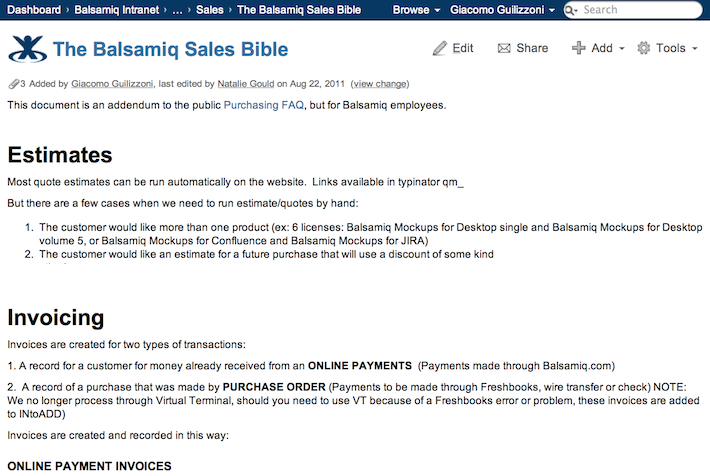Avoiding the Circumlocution Office
A few weeks ago, I finally received my "permesso di soggiorno," my permission to stay in Italy. As an American citizen I knew the process for getting my paperwork to work in the Bologna office would be slow, but I don't know if either Peldi or I expected it to take quite as long as it did! One year, six international flights, a heap of paperwork and countless hours spent waiting in Italian government offices later, I have my full permission (at least, for the present moment!).
Wading through paperwork and government offices made us a bit crazy, but all that waiting gave me a lot of time to reflect on why frustrating bureaucracy comes about in the first place.
Though the Italians have excelled at creating legendary levels of bureaucracy, they are not alone! I remember standing hopelessly for hours in the government offices in Bologna looking at the workers surrounded by heaps and heaps of papers. I found it hard not to think of Charles Dicken's Little Dorrit, and his Mr. Barnacle (aptly named for some one who slows down a process) in the Circumlocution Office. Requests go into the Circumlocution Office, but they rarely make their way out.

(BBC's 2008 version of Little Dorrit)
Having found ourselves sent on journeys to collect multiple documents, which later we found served no purpose, having stood for hours in line unsure if we'd ever see a person who might know an answer to our question, and finding answers were often in absolute contradiction of each other, we were left a bit hopeless that we would ever find our way successfully through our 21st Century version of what Dickens obviously was poking fun of in the 19th.
Why do we battle bureaucracy?
Well, bureaucracy is created in reality, not to slow us down, but to manage and organize things efficiently as they become larger. Bureaucracy is created to try to help us scale growth.
Our experience of bureaucracy, however, often feels the opposite. We feel lost in a system, going in circles on an automated customer service line, or filling out paperwork, forms or surveys we can't see relate to our case or problem, just trying to get to a person who can help.
Creating bureaucracy that works: Communication
No one really likes the word bureaucracy, so let's just say systems. How do you create these systems, that can successfully manage and scale growth, while still meeting the mission of the organization, and not getting weighed down with, well, bureaucracy?
Our friendly little company is finding we are not quite so little any more. We're growing up! Our revenue and number of customers continue to grow, as has our staff. As we looked at this growth last fall, we knew in order to manage that growth, we were going to need grownup uber-efficient systems as well. But how do we manage this growth while still staying the personable company we want to be?

For us the answer is all about communication: improving communication with our customers and improving communication on our team.
The experience of dealing with a Circumlocution Office is maddening because of bad communication: time wasted jumping through unnecessary hoops, confusion from finding multiple or incorrect answers, difficulty of finding information, and just plain slow response times as the office staff tries to get through a pile of requests.
We've been working on a lot of things internally to make sure that doesn't happen here at Balsamiq.
The Problem
We pride ourselves in our response time to customers, and also that we are a small personable company, but if we continue to increase customers as we have, and continue on with our operations as they are, we'll have to greatly increase our staff to keep up with the pace.
Some Solutions
1. Keep our response time, but reduce the number questions: We realized a lot of the things people were asking us probably could be dealt with if we provided better information to our customers from the start. So to keep our email, phone and Skype manageable with a small team, the answer for us is make the information clearer and more available to our customers.
To do this, we're very excited about our recent transition to Assistly for customer support, which will help us centralize our support and make sure that no one falls through the cracks in email. It also helped make our existing documentation clearer and more searchable on the website. Check out our brand new support portal, launched today!
On the sales side we put together the new Licensing and Purchasing FAQ to make answers directly available to both the customer and to our sales team for the first time.
2. Improve our staff's ability to answer and deal with inquiries: As we have grown, so have our number of products, and therefore the potential issues that may come up. There are more of us now on the Balsamiq team, and our company is a bit more complex. But information on how to do something or how to solve a problem was either in multiple places (email, our wiki, or just in different people's brains) or we really didn't have an answer and just winged it each time. This meant that it made it harder or took longer to solve some problems than it needed to, or that incorrect information was sometimes given.
To solve this, we've spent a lot of time codifying and documenting our internal procedures for sales, administration and bookkeeping on our wiki, so every member of the team has access to the same information in a clear and searchable way.

3. Improve the way we manage and store information: As the amount of information we are managing grows, we want to make sure we have access and use of it, rather than it having control and swamping us!
Paolo and Peldi have continued to develop Olio, our internal application for managing customers and licenses, which is helping us to centralize and organize our customer records, and more easily be able to track our sales.
A lovable bureaucracy
We hope all our systems enable, rather than detract from our mission. And know, these new systems are still a work in progress!
Our goal is serve you, the customer easily and quickly. Providing you with what you need in the quickest amount of time. We hope we are growing up the systems and streamlining in just the right sort of way: putting the information you need right at your fingertips, while still providing you with the friendly voice at the end of the phone or the real human being at the other end of an email if you get stuck.
Sometimes this streamlining means we may move a little too fast, so If you ever feel we're missing the mark, or that a ghost of the unhelpful Mr. Barnacle has unfortunately somehow become our newest staff member, let us know.
We're always open to hear your thoughts!




Comments (4)
BTW big fan of BBC America.
Natalie
As a brit, now resident in the US, I understand the issues you went through, trust me.
Andy
welcome to the true Italian experience!!
Check out the new system and it looks great…bravi!
We were in the same boat with regard to streamlining self-help customer (and prospect!) support.
Using separate forums, faq lists, documentation and the odd video just didn’t seem right. (even though that is how the majority of ISV’s function today. Why should customers jump around between different support content areas?
People only come to your support site WHEN they need something: an answer.
So we looked around to find a solution whereby we could deploy “joined up” support for our customers. If a customer reports a known problem would it not be nice (and logical) to respond to them with an existing ticket/bug report?
Nothing seemed to fit the bill in terms of what we needed. Being an ISV, we decided to build a new product with the premise that if we had this problem, then so must others. Cue Atlas.
More on our thinking and the end result:
http://www.collectivematters.com/2011/06/forum-software/
Suffice to say you are not alone!